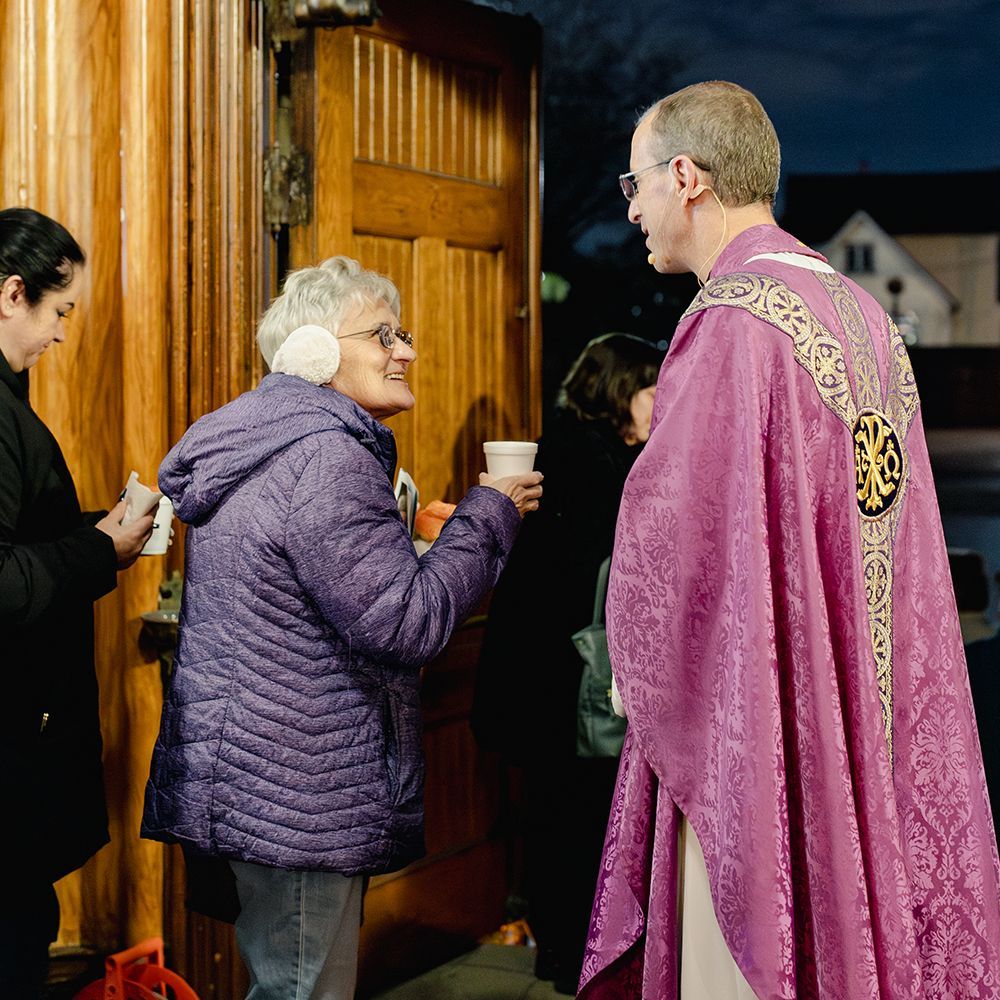That the World May Believe

I love today’s Gospel because, in it, Jesus prays for me.
And you.
And the guy sitting next to you at Mass. And the priest, and the altar server, and all the people in all the churches in all the towns in all the world who woke up this morning and headed to Mass because, while it’s true that God is everywhere, the Body and Blood of Jesus is only found in one place.
And he prays for the barista who will sell you your coffee later today and see your crucifix and hear you say, “God bless,” and think, “That’s a weird necklace, and I don’t believe in God,” but who will one day, at her lowest point, wonder if anyone ever truly loved her, and remember the sight of that broken and bloodied Corpus.
Today, Jesus prays for the person you passed on the way into the parking lot this morning, the one who doesn’t go to Mass anymore but who always walks his dog on this street, on this morning, for reasons he can’t explain.
He prays for your great-great grandparents and your great-great grandchildren.
“Those who will believe in me through their word.” That’s me. That’s you. That’s us. We’re the ones who believe through the word of the Apostles, who bore witness to the life and death and Resurrection of the God-Man, Jesus Christ, and whose testimony to that life is an eternal flame illuminating the understanding of every human being who will ever say, “I believe.”
But if we listen to what Jesus says today, we must understand: it’s not just the Apostles’ job, and it’s not done. It’s not a book that is closed. It’s a mission that is alive and ongoing, and it’s as much ours as it was theirs: that the world may believe that you sent me.
©LPi




